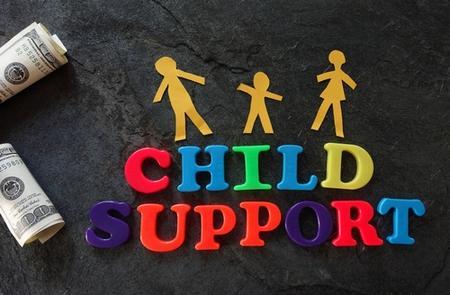630-462-9500
After Hour New Client Telephone Number 630-690-6077
1776 S. Naperville Road, Building B, Suite 202,
Wheaton, IL 60189
Recent Blog Posts
Explaining Your Divorce to Your Children
 Every year, thousands of American couples choose to file for divorce. Divorce can be brought on for a multitude of reasons, but it does create complications in family dynamics. For couples with children, the decision to pursue a divorce can be incredibly difficult. Even more difficult is the conversation that parents must have with their children. If you are considering a divorce, involving your children in the divorce process can be critically important to their emotional development as well as their understanding of their new home life.
Every year, thousands of American couples choose to file for divorce. Divorce can be brought on for a multitude of reasons, but it does create complications in family dynamics. For couples with children, the decision to pursue a divorce can be incredibly difficult. Even more difficult is the conversation that parents must have with their children. If you are considering a divorce, involving your children in the divorce process can be critically important to their emotional development as well as their understanding of their new home life.
Why These Conversations Are Important
Approximately half of all American children will witness the separation of their parents. While divorce oftentimes represents a healthier growing environment in comparison to an unhealthy married household, parents contemplating divorce need to help their children understand why they are separating. Studies conducted have found that children who experience a divorce in the household are more likely to experience depression, decline academically, and struggle with substance abuse. Children who experience a divorce are more than twice as likely to drop out of high school. Even later in life, children of divorce are more likely to experience psychological challenges such as anxiety, loneliness, and insecurity. All that said, a divorce can save a child from experiencing an abusive or dysfunctional home life.
Why Your Divorce Does Not Have To Impact Your Child's Education
 When contemplating a divorce, parents have more to think about than just their relationship. While no one wants to stay in an unhealthy relationship, parents oftentimes choose to remain in toxic relationships, due to financial concerns, insecurity, and the wellbeing of their children. For many parents, the thought of a separation is quelled by the notion that they will no longer be able to support their children. Even those that believe they will receive child support payments have questions about their long-term ability to support their children's dreams. No question is bigger than "Will I be able to help my child go to college?"
When contemplating a divorce, parents have more to think about than just their relationship. While no one wants to stay in an unhealthy relationship, parents oftentimes choose to remain in toxic relationships, due to financial concerns, insecurity, and the wellbeing of their children. For many parents, the thought of a separation is quelled by the notion that they will no longer be able to support their children. Even those that believe they will receive child support payments have questions about their long-term ability to support their children's dreams. No question is bigger than "Will I be able to help my child go to college?"
Fortunately, the state of Illinois has laws that can help sole-custody parents continue to receive child support for a non-minor child's education expenses. If you want to help your child attend a quality university but are worried that your former spouse may not contribute, it may be time to contact a family law team that will represent your family's best interest.
Escaping An Abusive Marriage
 In the vast majority of marriages, fighting starts and ends in verbal quarrels. Still, there are thousands of marriages throughout the United States in which one spouse faces domestic abuse from their partner. Here in the state of Illinois, there are more than 40,000 adult survivors of domestic abuse, and approximately 8,000 child witnesses. While escaping a toxic domestic situation can be difficult, remaining in one can be dangerous for you and your children. If you experience domestic abuse, contact law enforcement personnel as soon as possible.
In the vast majority of marriages, fighting starts and ends in verbal quarrels. Still, there are thousands of marriages throughout the United States in which one spouse faces domestic abuse from their partner. Here in the state of Illinois, there are more than 40,000 adult survivors of domestic abuse, and approximately 8,000 child witnesses. While escaping a toxic domestic situation can be difficult, remaining in one can be dangerous for you and your children. If you experience domestic abuse, contact law enforcement personnel as soon as possible.
Domestic Violence Throughout the United States
According to the National Coalition Against Domestic Violence (NCADV), more than ten million Americans face domestic abuse each year. Domestic abuse disproportionately impacts women, as approximately 1 in 3 women in the U.S. experience abuse in an intimate relationship. When facing domestic violence in a marital relationship, it is critically important for the victim to remove themselves from the situation. Victims of prolonged domestic abuse are more likely to face issues of post-traumatic stress, depression, and even thoughts of self-harm.
Is Your Spouse Wrecking Your Finances?
 Here in the state of Illinois, divorce rates have steadily declined since the 1990's. Still, hundreds of Illinoisans make the difficult decision to divorce from their spouse, every year. Nationwide, thousands of Americans get divorced on an annual basis. These divorces can be brought on by infidelity, unhealthy parenting dynamics, and a lack of love for the spouse. Yet, in many cases, the decision to pursue a divorce is considered due to one issue: the reckless and irresponsible spending of a spouse.
Here in the state of Illinois, divorce rates have steadily declined since the 1990's. Still, hundreds of Illinoisans make the difficult decision to divorce from their spouse, every year. Nationwide, thousands of Americans get divorced on an annual basis. These divorces can be brought on by infidelity, unhealthy parenting dynamics, and a lack of love for the spouse. Yet, in many cases, the decision to pursue a divorce is considered due to one issue: the reckless and irresponsible spending of a spouse.
Staying in a relationship with a partner that recklessly spends money, can ultimately compromise the financial security of you and your family. If your partner, is behaving in a financially reckless manner, it may be time to consider contacting a divorce attorney.
Signs That Your Financial Health Is At Risk
Understanding when it is time to make an emotional relationship change based on financial security can be challenging. It is important to know when to get out of a financially reckless relationship before it is too late. If your partner begins making decisions that impact your savings or retirement, is spending large quantities of money without consulting you or is lying to you about the landscape of your financial future, it may be time to consider a divorce. Making the decision to remove yourself from a relationship based on finances, can feel cold, but after all other avenues have been explored, a divorce may be the right, and only, option.
Ensuring You Receive Your Child Support Payments
 In the aftermath of a divorce, both parties have a lot to contemplate: where will I live, will I be financially comfortable, what will happen to my children? In a large number of divorce cases involving children, one parent is granted primary custody of the children involved. For most of the parents granted primary custody of their children, receiving child support payments from their former spouse can make all the difference in ensuring a healthy financial future.
In the aftermath of a divorce, both parties have a lot to contemplate: where will I live, will I be financially comfortable, what will happen to my children? In a large number of divorce cases involving children, one parent is granted primary custody of the children involved. For most of the parents granted primary custody of their children, receiving child support payments from their former spouse can make all the difference in ensuring a healthy financial future.
Tragically, less than 70% of all child support payments owed, are actually received by the spouse in need. If you are owed child support payments and your former spouse is unwilling to comply, it may be time to consider seeking the help of a team of legal professionals.
U.S. Child Support Statistics
In 2013 alone, over $32 billion in child support were owed to primary custody parents, throughout the United States. While many people falsely believe that child support payments are incredibly high and can be crippling to the spouse making the payments, the average annual child support payment is approximately $5,775, per year. That ultimately results to less than $500 per month in child support payments. Child support payments can make the ultimate difference in a child's life, but many parents neglect to do their part. According to the United States Census Bureau, one in four primary custody parents awarded child support never receive the payments they are owed.
Understanding When to Consider a Divorce
 Every year, thousands of Americans walk away from their relationships. A divorce can represent a new opportunity for the entire household: a change in parenting dialogues, less fighting between the parents, and a new chapter for the former spouses. Despite unfactual rhetoric suggesting that divorce can lead to problems for children, prolonged fighting between the parents, and future financial insecurity, sometimes a divorce is the best option for everyone. Still, it can be truly difficult to know when it is time to walk away from a marriage. If you are considering the possibility of a divorce, it may be time to contact a legal professional.
Every year, thousands of Americans walk away from their relationships. A divorce can represent a new opportunity for the entire household: a change in parenting dialogues, less fighting between the parents, and a new chapter for the former spouses. Despite unfactual rhetoric suggesting that divorce can lead to problems for children, prolonged fighting between the parents, and future financial insecurity, sometimes a divorce is the best option for everyone. Still, it can be truly difficult to know when it is time to walk away from a marriage. If you are considering the possibility of a divorce, it may be time to contact a legal professional.
When To Walk Away
Just like every marriage, every divorce is different. Yet, many divorces are brought on by the same combinations of symptoms. Below are a few examples of signs that a divorce may be right for you and your family.
Aggressive Communication: When communication with your spouse begins to lack patience and becomes aggressive (screaming, shouting, using expletives), it may be time to consider the possibility of a divorce. A common mistake people make in deciding to stay in an unhealthy marriage is the utilization of the notion: “Everybody Fights”.
Divorce Rates High Among Older Americans
 Despite the common misconception that divorces are rising throughout the United States, divorce rates have been declining since reaching a peak rate in the late 1970s, when about 50% of marriages ended in divorce. Today, with the use of advanced technology and increased intel, organizations can track divorce statistics within specific age demographics.
Despite the common misconception that divorces are rising throughout the United States, divorce rates have been declining since reaching a peak rate in the late 1970s, when about 50% of marriages ended in divorce. Today, with the use of advanced technology and increased intel, organizations can track divorce statistics within specific age demographics.
According to studies conducted by the Pew Research Center, divorce rates have risen exponentially among Americans 50 years or older. Since 1990, divorce rates among U.S. adults over the age of 50, have more than doubled. If you believe that divorce is the right choice for you, it may be time to explore your options.
Why The Rise?
With the rise in divorces among Americans over the age of 50, many people are wondering why. There are many reasons why couples elect to separate, and for this specific age demographic there are a number of common reasonings:
Is Appealing Your Family Law Case Right for You?
 Family law courts routinely make decisions on monumental issues, such as child custody, property division issues, and alimony determinations. Thus, it is no surprise that a large number of people leave the courtroom, disappointed by the decision-making process and the determinations that were made.
Family law courts routinely make decisions on monumental issues, such as child custody, property division issues, and alimony determinations. Thus, it is no surprise that a large number of people leave the courtroom, disappointed by the decision-making process and the determinations that were made.
Fortunately, sometimes people can contest unwanted outcomes. If you truly believe that your family law case has been wrongly decided, it may be possible to pursue an appeal. It is important to understand that simply being unhappy with the court ruling does not entitle you to an appeal. An appeal is only plausible if the decision is truly incorrect. If you believe the grounds that lead to the court's decision in your family law case were falsely established, it may be time to explore the possibility of an appeal.
Understanding the Appeal Process
An appeal is defined as the process in which an appellant (the person requesting the appeal) does not believe their case was properly decided and requests examination of the decision from a higher court. In the state of Illinois, family law appeals are always first reviewed by the appellate court of the state of Illinois.
The Implications of a DUI Conviction in Illinois
 According to the National Highway Traffic Association (NHTSA), upwards of 1.6 million Americans are convicted of Driving Under the Influence each year. Here in the state of Illinois, drunk driving continues to pose a massive threat for law enforcement officials, as just under 2,000 people were arrested for driving drunk in the greater Chicago area, throughout 2017. Even with the sheer number of DUI arrests, a conviction can come with massive implications. If you are arrested on charges of a DUI, it is important to meet with a legal representative and explore your options, moving forward.
According to the National Highway Traffic Association (NHTSA), upwards of 1.6 million Americans are convicted of Driving Under the Influence each year. Here in the state of Illinois, drunk driving continues to pose a massive threat for law enforcement officials, as just under 2,000 people were arrested for driving drunk in the greater Chicago area, throughout 2017. Even with the sheer number of DUI arrests, a conviction can come with massive implications. If you are arrested on charges of a DUI, it is important to meet with a legal representative and explore your options, moving forward.
The Impact of a DUI
Here in the state of Illinois, a DUI conviction comes with legal ramifications that can change your life forever. A first conviction is a Class A Misdemeanor, and it comes with a year-long driving ban and suspension of vehicle registration. The real impact of a DUI conviction comes in the financial impact of hiring a legal team, the misdemeanor on your permanent record (impacting future job opportunities and potential bank loans in the future), and the recognition of the fact that a second conviction could be incredibly damaging.
Preparing for a Hostile Divorce
 Every year, thousands of American couples make the difficult decision to get a divorce. In fact, the Centers for Disease Control and Prevention (CDC) estimates that approximately 800,000 divorces occur throughout the United States on an annual basis. While some divorces can be a seamless transition into a new life for both partners, some divorces can be contested. Divorce settlements are routinely complicated by issues such as child custody, resource allocation, and division of property.
Every year, thousands of American couples make the difficult decision to get a divorce. In fact, the Centers for Disease Control and Prevention (CDC) estimates that approximately 800,000 divorces occur throughout the United States on an annual basis. While some divorces can be a seamless transition into a new life for both partners, some divorces can be contested. Divorce settlements are routinely complicated by issues such as child custody, resource allocation, and division of property.
If you believe that your former spouse is likely to contest you on any number of issues, it is important to be prepared. Most importantly, it is critical to partner with a legal representative that is eager to fight for your best interest.
Potential Contentious Issues
While no divorce is the same, there are a number of issues of contention that are commonly fought for during a divorce settlement. Listed below are a few issues that may arise during your divorce:




















